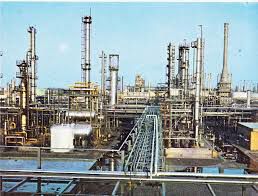1948: THE BRITISH LABOUR GOVERNMENT AND THE COMING OF THE ANGLO-IRANIAN OIL COMPANY’S CRISIS
During the First World War the Labour Party had already adopted the mandate principle of the future League of Nations and also made international control a focal point of its colonial programme. In this there were two aims: ‘to prevent a new rivalry for colonial acquisitions among the world powers, and to replace capitalist exploitation by a policy of reform which would “develop backward people” and prepare them for self-government’.54
In addition to the two above-mentioned goals, not only did the Labour Party want ‘a detailed formulation of the mandate principle and a well-defined system of international control; it was even more concerned with subordinating all the colonies to the League of Nations’.55 In the following years the Labour Party demanded to extend the mandate principle to all European colonies. However, the SFIO (French Socialist Party), unlike the British Labour Party, was interested in assimilation and not self-government, which was the object of the mandate policy, and thus showed no interest in the British Labour Party’s initiatives.
Labour’s opposition to colonial acquisition among the world powers helped to establish a certain basis of trust between Britain and the nationalist leaders.
This examination firmly indicates that the Labour Party is covertly ideological. It stresses the need for equality, equality between classes and between races. It insists on equality of opportunity and, even, equality or near-equality of rewards. Social persuasion is given a very high priority by the Labour Party. It advocates an extension of public ownership and/or control. In foreign affairs the Labour Party is ‘far less hesitant about cutting defence expenditure and closing overseas bases than any Conservative government is ever likely to be’.56 It is ‘parochial and fervently anti-colonial’.57 On the eve of the 1951 general election the British press held the view that Labour ‘achieved an equilibrium in southern Asia, while failed in the Middle East.’58 This was how the New Statesman saw it, a Labour supporter, which became an unrelenting critic of Labour’s Middle East policy.
There is a gap between ideas and political practice. The Anglo-Iranian Oil Company’s crisis confronted the Labour Party with all kinds of economic problems which required its special attention. The crisis was one that would temporarily affect the internal economic position of the United Kingdom, and therefore it was not a case of advocating imperialism, and imperial flag waving, but one of domestic national interest.
- Ibid.
- Ibid.
- S.E. FINER, Comparative Government, (Middlesex: Penguin, 1970), p. 165.
- Ibid. p. 23.
- The New Statesman, in W.R. LOUIS, op. cit. p. 738.



